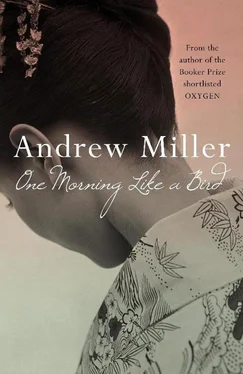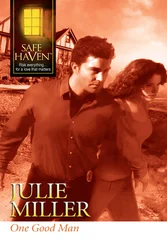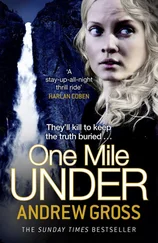‘Mother has been baking?’
‘I should have taken her long ago. If I had realised how it would benefit her . .’
Yuji looks at the parcel, touches it. He feels as though sake is seeping in a gum from his eyes, that he could, at any instant, become hysterical. He also feels quite calm. He picks up the envelope beside the parcel.
‘A young man in a theatrical uniform delivered it,’ says Father. ‘If you had been here a little sooner, you would have met him.’
‘There was a big car?’
‘Apparently. Miyo saw it.’
‘I think I have met him already.’
‘A highly unpleasant type.’
‘Yes. Shall I help you to wrap those?’
‘I’ve nearly finished.’
Inside the envelope is an ivory card, a crest of some sort at the top, and below, in expensively printed calligraphy, an invitation to a private viewing of the Unit’s inaugural film, Blood and Silence , to be shown at 3 p.m. the following Friday at the residence of Mr Kaoru Ishihara.
‘I shall be going to Setagaya this evening,’ says Father. ‘When I spoke to Sonoko, she was not particularly encouraging.’
‘No,’ says Yuji. It is two weeks since he visited Grandfather. Did Sonoko mention that too?
‘You’ll be able to come, I hope?’
‘Yes.’
‘Then,’ says Father, pushing himself to his feet, ‘perhaps you might want to shave before we leave. And a fresh shirt . .?’
It’s dusk when they set out, father and son, their gait almost indistinguishable as they pass the dark or softly lit houses of the street that for so many years has been their home. To the west, small flocks of birds flit across the sky. To the east, the moon is rising out of a chimney in Honjo.
‘Have you had much trouble with Saburo?’ asks Father.
‘Not really,’ says Yuji. ‘Perhaps our mistake was to take him too seriously.’
‘Your efforts at the bathhouse should keep him quiet for a while. I must congratulate you. I have already heard the story from Mrs Itaki and old Kawabata. It seems you saved the keeper’s wife.’
‘There were several of us,’ says Yuji. ‘And we could not save Watanabe.’
‘A pity.’
‘Yes.’
‘Even so, you behaved correctly.’
‘Dr Kushida says I’m ready for the army now.’
‘I shall be seeing him tomorrow, or the next day.’
‘I wonder,’ says Yuji, ‘if there is any point delaying the inevitable.’
‘It will be hard to avoid it altogether,’ says Father, ‘but there is no need to embrace it before it becomes necessary.’
‘I am hardly embracing it.’
‘No,’ says father, glancing across at him. ‘Naturally.’
At the house in Setagaya, Sonoko, more nurse now than housekeeper, leads them to the little ‘winter’ room at the side of the house, where Grandfather is sitting beside a kotatsu . He looks up at his visitors, looks from one to the other. For a second Yuji is afraid he does not recognise them. Then he nods, croaks a welcome. Sonoko puts down sitting cushions. Would they like tea, or sake, perhaps? They ask for tea.
‘Kensuke and Sawa send their regards,’ says Father. ‘Noriko, too, of course.’ He pauses but there is no reply. Nothing.
‘And Hiroshi has visited. Also Asako and the child.’
It’s hard to say what the old man has heard, what he is attending to. Under the ridge of his grey brows, he seems to be staring inwards at some scene of disarray he cannot now ever turn away from.
‘Hiroshi has finished his training. He will be posted soon. It could be anywhere. They are not informed until the last moment.’
Sonoko brings in the tea. Grandfather immediately turns to her, his eyes full of silent entreaty, as though he hoped she would send away these people who come to him with news of a world he has finished with. Father lights a cigarette. Good cigarettes are not easy to find any more. He draws on it thoughtfully, holds the smoke in his lungs for a second before letting it stream slowly through his nose. Grandfather says something to him. It’s like the noise of a radio between stations, a growl of static in which words are hidden. He does not bother to repeat it. Father looks at Sonoko.
‘He says you have learnt to sit up straight now.’ There is the hint of a smile on her face.
Briefly, Father smiles too. ‘Yes,’ he says. ‘The mountain has been a good teacher.’
The supper is invalid food, bland, easily chewed, easily swallowed. Conversation of any kind is so difficult it makes Father sweat. Yuji does not help him. The silence, interrupted only by the tap of the teapot on the lip of a cup, is easier to bear.
At nine thirty Sonoko informs them that it is time for Grandfather to retire. She stands and reaches down for him, slides an arm under his shoulder. ‘Goodnight, Grandfather,’ says Yuji. The old man flutters a hand at him, then turns, lets himself be led from the room, a lame ox led away by the farmer’s wife. Twenty minutes later Sonoko returns.
‘Does he sleep well?’ asks Father.
‘He sleeps,’ she says, ‘but when he wakes he is still tired.’
‘Please inform us,’ says Father, ‘if you need more assistance.’
She thanks him.
In the eight-mat room, the lamp is lit, the bedding pulled from behind the fusuma doors, unrolled.
‘You hardly spoke all evening,’ says Father, taking off his jacket. ‘Are you feeling unwell?’
‘You too,’ says Yuji, ‘must be tired after your journey.’
‘Yes. Travel is tiring.’
‘Do you know how long you will be staying?’
‘A week should be long enough.’
‘Just a week?’
‘With spring coming it’s a busy time on the farm. Hiroshi’s away, and the young fellow who used to help now and then has gone too. The more I can do, the more time Kensuke can spend in the dyeing barn. Even in these times there’s quite a demand for his work . . I’ll visit again in a month or two. Much depends on what happens here. I hope you will keep us fully informed.’
Father takes his towel and leaves for the bathroom. Yuji, over-tired or not yet nearly tired enough, parts the doors of the model room and leans his face inside. The light from the lamp behind him gives the model an eerie, moonlit look. The threads of the satin river gleam. The tin tops of trams and taxis, the wire spars of a bridge, hold sparks, pale smears of light, while the rest, the labyrinth of little streets, the toy buildings with their toy-sized shadows, remain in darkness. (He cannot, for example, see the Bank of Japan.) Was there a moon the night before the earthquake? He doesn’t know, though he must, at Uncle Kensuke’s, have seen a moon rise or not. He tries to remember, to think of the mountain, of himself as a boy on the mountain, but his imagination offers him only what it has offered him all day, a white ship on a sea of living jade, a woman at the rail with a child in her arms.
‘Is it finished?’ asks Father, appearing at Yuji’s shoulder his face smelling of the astringent brown soap Grandfather has long preferred.
‘I don’t know,’ says Yuji. ‘If he can’t work on it any more, I suppose it is.’
‘Don’t you think Sonoko must have been doing most of it? I always thought so.’
Yuji slides the doors shut. He goes to the bathroom. When he returns, Father is in bed, unbuckling his watch.
‘Have you lost yours?’ he asks.
‘It’s at home,’ says Yuji. He puts out the lamp. A night bird calls from the garden. The house settles.
‘Miyo,’ says Father, ‘seemed in her own way to be hinting at something. I imagine she meant me to think you had found a new companion.’
For a moment Yuji is tempted to keep silent, to feign sleep. Then, speaking to the purple air above his head, he says, ‘Yes.’
Читать дальше












